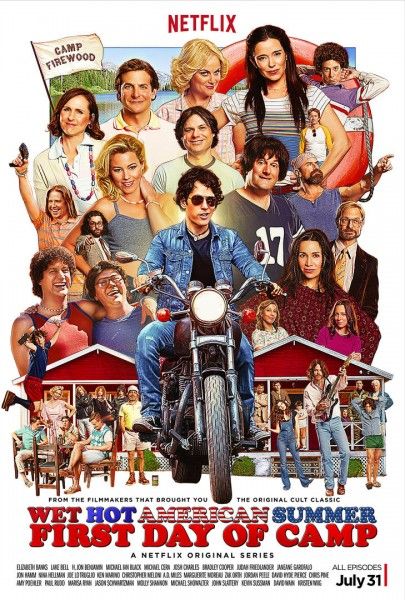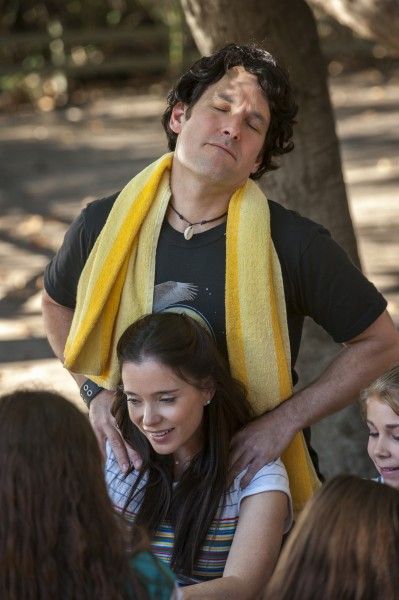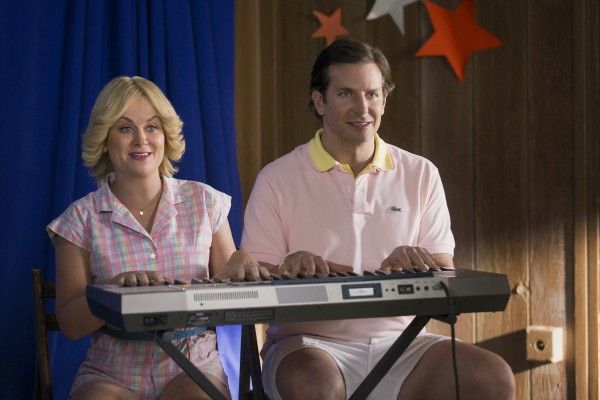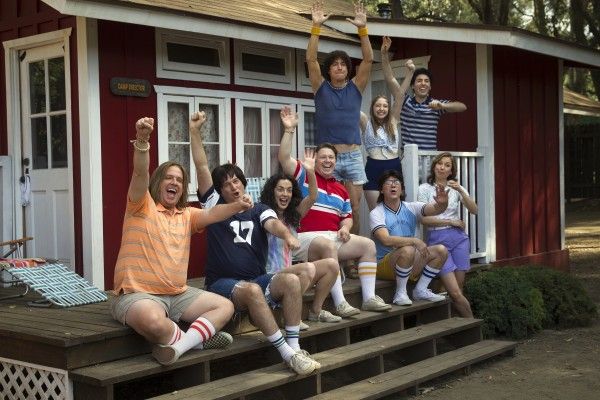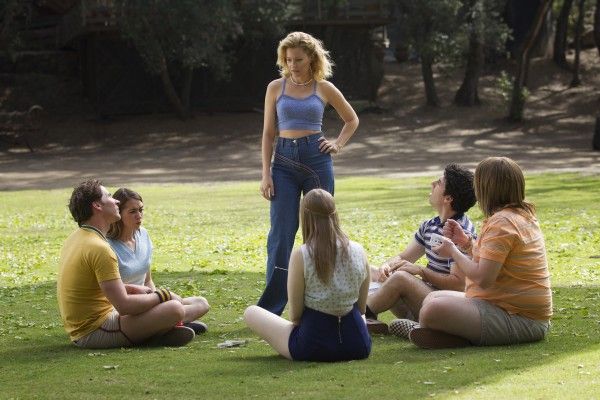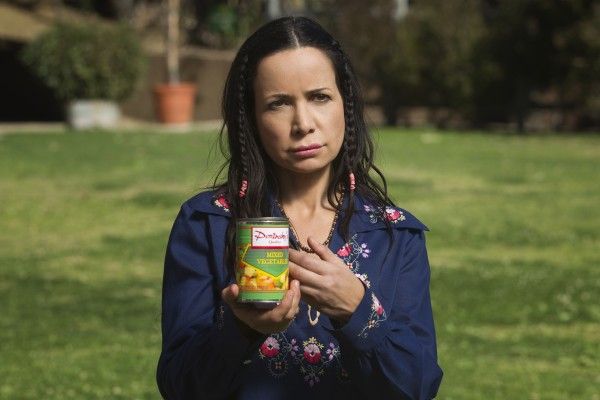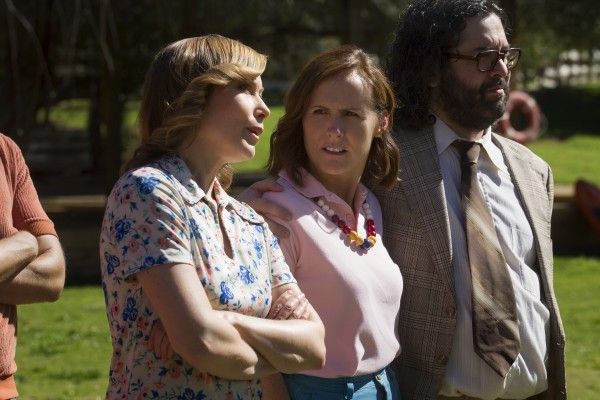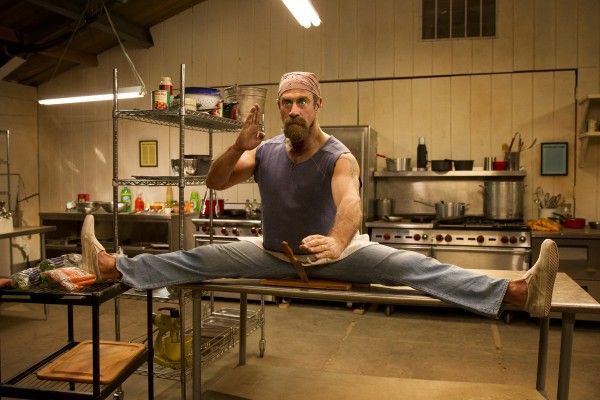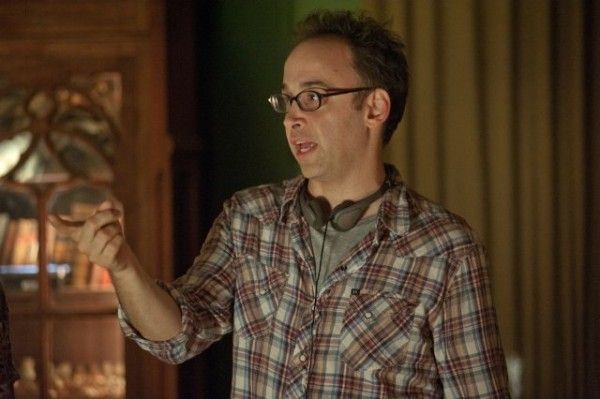From the filmmakers of the original 2001 cult classic, the Netflix series Wet Hot American Summer: First Day of Camp is the hilarious prequel starring the entire original cast, along with some new additions, in eight 30-minute episodes. Taking place at Camp Firewood, two months earlier than the events of the movie, relationships will bloom and hormones will rage against a backdrop of athletics, arts and crafts, theater, secret identities, sexual discovery, and diabolical government conspiracies. The show stars Paul Rudd, Bradley Cooper, Elizabeth Banks, Amy Poehler, Janeane Garafalo, Ken Marino, Christopher Meloni, Marguerite Moreau, David Hyde Pierce, Molly Shannon, Lake Bell, Jon Hamm, Chris Pine, Kristen Wiig and many others.
During this exclusive interview with Collider, writers and executive producers David Wain and Michael Showalter talked about how this evolved from a movie sequel to a prequel TV show, that the journey to success for the original movie was not what they expected, how bizarrely normal it felt to revisit these characters with the same actors, how they decided who to add to the cast, that they largely stuck to the scripts, who causes the most laughs on set, and whether they’d like to continue telling stories in this world.
Collider: David, back with Wanderlust, you had said that you guys were working on a movie sequel, but somewhere along the way that seems to have morphed into a Netflix prequel series. Was that ultimately your idea, or did Netflix come to you?
DAVID WAIN: The truth is that we were thinking about it as a movie, which was the first, most obvious thing to do. But as we were putting it together, just the scope of what was in our heads was growing and the canvas was too small for what we started to feel about the characters and the storylines, and everything that we wanted to serve. Also, the movie business is changing, as well, and Netflix was this new model and way of doing things that was just coming onto our radar. It just all timed out where we were like, “Wait a minute, maybe this is more of a Netflix type of project.” Once we thought of that, we didn’t even turn back.
MICHAEL SHOWALTER: If you want a TV show at Netflix, you just go sign up. You just have to get there very early and park.
WAIN: And then, you have to fill out this form, so you can do a show.
SHOWALTER: We probably waited five or six hours, but there was a slot and we got the slot, so we were good to go.
WAIN: But, we didn’t start shooting for another two weeks after that.
SHOWALTER: It’s like getting a tennis court. You have to show up early to get it.
How did you decide on this amount of episodes? Was this just the amount of episodes it took to tell the story you wanted to tell, or did you have to write within this parameter?
SHOWALTER: We knew eight episodes was the number of episodes that we were trying to hit. We wrote the episodes before we started to shoot, but not before we had the deal with Netflix. So, we agreed with Netflix that this was going to be an eight episode show, and we went in and took our larger ideas and broke it into eight pieces.
When you did the movie, you had about 90 minutes to tell your story, and now you have four hours. Was it easy to fill all of that extra time?
WAIN: It was easy to fill, I thought. You contract and expand to what you feel like you have. We also both work on the show Children’s Hospital for Adult Swim, which is 11 minutes long, and that’s its own other animal. Somehow those stories are just as epic and detailed and dense as anything else, but we conceive it to be an 11-minute way of doing it. Each medium has its own timing.
When you originally made this movie, what were your expectations for it, and when did you realize that it had really taken on a life of its own?
SHOWALTER: My expectations were that it was going to be a successful indie comedy, like Dazed and Confused or Reality Bites. I thought that it was going to be that cool, funny, generational comedy that everyone loved. It was wishful thinking, but that’s what I thought. I found out the hard way that that’s not what happened. And then, there was this slow rise until it became something else.
WAIN: We were one of 1,500 movies that went to Sundance that year, in 2001. We were hoping that someone would pick it up and give it some kid of release, but they didn’t.
SHOWALTER: All those years, you’re just trying to live your life. You’re just trying to figure out where you want to live, what you want to do, the kind of projects you want to work on, and all that stuff. For some people, that happens really fast. For other people, that’s a longer journey. The journey to this point was a long journey, but it’s not like we were sitting there and waiting. This has been a long and winding road to this point, and it’s included all the great hopes we had for what we thought the movie was going to be, and then experiencing the disappointment, and then the excitement and gratification. For a long time, it was just being happy that people really loved the movie, and a feeling of, “We did it! This is great! This is all we could have hoped for.” So many of the movies I grew up loving were also cult movies. So, to think that my movie was like that, and that it was like some of the movies that I grew up loving that were called cult movies, it was the best compliment in the world. For awhile, we were just riding on that.
WAIN: It’s such a great feeling to know that teenagers are like, “You’ve gotta see this!”
SHOWALTER: There were the movies from my childhood, like Valley Girl and Repo Man, and we were like, “Oh, my god, if we’re anything like that, than we’ve won.” And then, maybe in the last five or six or seven years, that has turned into a new conversation, which was, “Should we do a sequel? Should we do another project? If so, what should it be?” And then, that evolved into talking about what it should be, and whether other people want to do it, and how we were going to do it. Before you know, there you are and you’re doing it.
What was it like to be on set and revisiting these characters with the same actors, so many years later?
SHOWALTER: It’s bizarre, and it’s also weirdly not bizarre. There’s a time warp quality to it.
WAIN: It’s bizarre how normal it feels.
SHOWALTER: It’s nice that nobody has died of a drug overdose.
WAIN: Or for any reason.
SHOWALTER: Everyone is still doing great. We’re all still more or less in touch. In this weird way, it wasn’t like, “Wow, we’ve really drifted apart. This is like some crazy, weird reunion.” It wasn’t like that. It was weird because it felt like nothing had changed, even though we know so much has happened.
The careers of this cast has grown and changed so much since the original film. Did it feel that way, on set?
WAIN: In a way, making Wet Hot American Summer felt the same. They were all just doing it. Bradley Cooper was just playing his character, and Elizabeth Banks was just playing her character.
SHOWALTER: Obviously, we know that some people have become movie stars, but everybody was more confident, everybody was better with what they do, and everybody was more savvy about the process. That informed the project itself. Someone like Elizabeth Banks comes on set and just knows it out of the park, the first time. And that’s true of everybody. They’re pros. There isn’t as much uncertainty. When we did the movie, there was a little bit of, “What are we doing?” There was none of that this time because everyone knew exactly what they were dong.
WAIN: We were confident in our parts and our process, with the writing, execution and prep. But as with everything, you’re also taking a big swing and hoping that it all adds up to something that works. The first big test is, do we think it works? And we do. We’re really excited and thrilled about it. Hopefully, the audience will agree with us.
You’ve added some new people to the cast, this time. How did you go about determining who would fit in with the rest of the group?
SHOWALTER: It was just about who feels right for each part, and part of that is who feels like they fit into this ensemble. Some of it was always wanting to work with a particular person. We’d just take a shot in the dark and ask if they wanted to do it. Some of it was people we’ve collaborated with, reaching out and saying, “If there’s anything in there for me, let me know.”
Who was the biggest shot in the dark person you went to and were surprised they said yes?
SHOWALTER: For me, it’s Bruce Greenwood, who’s one of my favorite actors. He’s a very serious actor, but we asked him. We don’t know him. We asked him to play a funny part in it, and he’s hilarious. He came and did it, and he’s absolutely hilarious.
WAIN: I also felt that way about Chris Pine. We didn’t have any connection to him, but he just said, “Sure, let’s go.” On our set, it’s just pretty silly, goofy and stupid, but it’s stupid in the right way.
How strictly did you stick to the scripts that you wrote? Did you want everyone to stick pretty close to them, or did you encourage them to have some fun with it?
WAIN: We don’t encourage fun. That’s very frowned upon. If anyone on the set, the crew and cast, is enjoying themselves, it’s a big no-no. It can be a problem. You go in the hole. If you’re having fun, we put you in the hole. If you’re smiling or laughing, these are problems. No. The serious answer is that we largely stuck to what we wrote. Similarly to the way we did it with the original movie, it’s a combination of somewhat our style of writing and somewhat the necessity of having to keep moving fast. But of course, there’s always room for ideas and improv.
SHOWALTER: It’s not large scale improv. It’s not the kind of improv where entire scenes are being invented, improvisationally, or giant riffs are coming out. It’s more this line here, or that line there. But those lines become quotable lines, for sure, and are some of the funniest lines you’ll see.
WAIN: The other kind of improvisational work we do on set is when we’re already ready to shoot and, at the last second, someone is like, “Wait, what if there was this whole other joke?,” and we stop and change gears to do that joke.
SHOWALTER: There are little add-ons like that, but it isn’t a thing where we’re like, “Okay, now we’re just going to let the camera roll and let’s see what happens.”
WAIN: That’s just not a style that we generally work in.
Is there any chance we might get to see some of the deleted moments from the shoot?
WAIN: Interestingly, there are some little things, maybe, but for the most part, the funniest stuff is in the show. I do think that one of the things we’ve gotten from experience is a little bit higher ratio of knowing what’s going to work from the page to the screen.
SHOWALTER: We’re better at knowing that something is not working when you’re shooting it. We have the discipline to recognize, as you’re shooting it, that something is not working and we need to tweak it to make it work.
WAIN: That’s experience that we have now, that we didn’t have back then.
When you work on something with such funny people, is there anyone who cracks up the most and has the most trouble getting through scenes, and is there anyone who cracks up everyone else the most?
WAIN: Michael Black tends to crack up people a lot. Everyone is so funny. Paul Rudd occasionally has his moments.
SHOWALTER: Lake [Bell] and I cracked up a lot, on this one. There are these moments that happen where you just crack up and you can’t help it. Usually, it’s when things get really serious. The funniest moments tend to be the moments when the character is trying to be really serious. That’s when people start laughing.
WAIN: There is some stuff happening in this show that’s so insane. Some of the scenes with Bruce Greenwood, it’s just like, “I can’t believe the level of commitment that these amazing thespians have to the dumbest stuff.” That’s what’s so much fun.
Now that you’ve had this experience with Netflix, is it something you’d like to continue doing, whether it’s further stories in this world, or with something else?
WAIN: I’m done with filmmaking, in general.
SHOWALTER: You’re like Steven Soderbergh.
WAIN: I’ve got a line of baskets that I’ve designed. If you want to come by, I’ll give you 10% off. No. I’m sure we would love to keep doing this, yes.
SHOWALTER: We totally want to stay in this world, but nothing has been discussed. This world has in it the ability to do anything.
WAIN: It’s hard to imagine getting tired of summer camp.
SHOWALTER: Not that we are going to, but if we wanted to take them into outer space, we could. There’s a lot of leeway here, to go anywhere we want and to do anything we want within the reality that we’ve set up. Every story we might want to tell, we can do here because we’re allowed to go anywhere with these stories, and we do. The show goes very far.
WAIN: It goes to there and back.
SHOWALTER: We go really far in crazy directions, and we play with different genres and types of stories. It’s all there.
Are you hoping that people binge watch all of these episodes at once, or would you rather they take their time viewing it?
SHOWALTER: You work on it for years, and then it’s over and forgotten, even in the best scenario.
WAIN: What’s great about Wet Hot is that, just because it’s a longer running time, there’s more to chew on from the audience perspective, but we made it knowing that at least some people will watch it all in a row, so it’s designed to work that way. I think it also works fine, if you don’t watch it all in a row. You should watch it in order, though, ‘cause it is a story.
Wet Hot American Summer: First Day of Camp is available at Netflix on Friday, July 31st @ 12 am PT.


